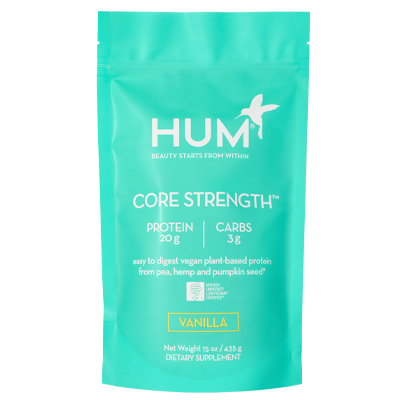What Are the Best Eggs to Buy? Here’s a Dietitian’s Full Guide
Carrie Gabriel, MS, RDN, shares her take on the best eggs to buy based on health content and value. But first: everything you should know about the different types of eggs on offer.
Imagine you’re at the grocery store doing your weekly shopping. You head over to the refrigerated section to check off the eggs on your list, and here’s where the confusion sets in.
Why are there so many different types of eggs at various price points? What do the different egg colors, labels, and ratings mean? And finally, what are the best eggs to buy?
Different Types of Eggs
To begin, there are countless types of eggs to choose from.
As noted above, the main categories of distinction include:
- color
- label/designation
- grade
Let’s discuss what all of these factors mean and which qualities are the most valuable in your eggs.

Egg Colors
Does the health value or flavor of an egg vary based on its shell color? According to Michigan State University Extension, the answer is no.
Egg color is determined by the hen’s genetics. Their breed will ultimately tell you the color her eggs will be. Perhaps surprisingly, all eggs start out the color white. If you look at the chicken’s ear lobes, usually the color will be the same as the eggs they lay.
(There’s a breed of chicken that lays blue eggs called Araucana. I’m not sure I’ve ever seen a chicken with blue ear lobes, but the next time I have an opportunity, I’m going to start looking!)
Overall, the bottom line is that that the egg’s shell color has no major bearing on nutritional content or taste.
Egg Labels (Designations)
Here’s a closer look at some of the most common labels on egg cartons and what they mean.
Conventional
These are your standard eggs, which often have no special label. If that’s the case, they most likely fall into the “regular” category.
This type of egg comes from chickens raised in large commercial farms. Their wings and beaks are often clipped and they’re kept in small cages on top of one another.
Due to these living conditions and the fact that they come from large commercial farms, these eggs are the most affordable for those with smaller budgets.
Cage-Free
Next, cage-free eggs are actually quite similar to conventional eggs. The chickens that lay cage-free eggs still get their beaks and wings clipped and live in close quarters with minimal sunlight and no guaranteed access to the outdoors.
The only major difference is that—true to its nomenclature—these chickens aren’t raised in cages. In terms of cost, cage-free eggs usually cost about a dollar more than regular eggs.
Free-Range
If the term “free-range” makes you think of chickens roaming at will in grassy fields all day, you may want to think again.
Yes, free-range does guarantee that chickens have some access to the outdoors for at least a portion of their lives. Free-range is a blanket term, however, as the amount of time and quantity of space outdoors can vary.
Free-range eggs tend to cost the same as the cage-free variety. They also have no special dietary implications.

Certified Organic
If your eggs are marked with the USDA’s certified organic designation, it means the chickens who laid these eggs were given certified organic feed free from chemicals and antibiotics.
But are organic eggs worth it?
One of the main benefits of this type of egg is that its consumption limits your exposure to harmful pesticides. These chickens are also uncaged and free to roam outdoors, so technically, they’re also known as organic free-range eggs.
Because of this extra step in the production process, the price of organic eggs will be slightly higher than other varieties.
Organic Vegetarian-Fed
Eggs with this label were produced by chickens that were fed a strictly all organic and vegetarian diet.
Sure, the vegetarian-fed label may have a certain appeal to vegetarians. However, it’s not necessarily a built-in benefit, as chickens aren’t ideally vegetarians. After all, worms and bugs are part of a chicken’s natural diet.
As far as costs go, the price of organic vegetarian-fed eggs will be slightly higher than that of a certified organic egg.
Antibiotic-Free
Antibiotics are more common in chicken feed, but few hens are ever actually injected with antibiotics.
Out of the three types of antibiotics approved by the FDA to treat diseases in hens, none of them have had any marked effect on the eggs. In fact, these antibiotics actually prevent the hens from laying infected eggs.
Pasture-Raised
Finally, we saved the healthiest eggs to buy for last. When it comes to egg labels, pasture-raised is the gold standard.
These eggs come straight from chickens raised on a pasture, which typically indicates that they could freely roam full access to sunlight. These chickens ate an organic diet, complete with bugs and worms for nourishment.
Lastly, pasture-raised eggs are free of hormones and antibiotics.

Egg grades
Grades are how we classify eggs by structure and consistency. The consumer grades for eggs in the United States are:
- AA
- A
- B
You should know, however, that grades aren’t a safety standard. If you buy eggs from a grocery store, they should be safe to eat—regardless of the grade.
Here’s a deeper dive into the different types of egg grades and what they mean.
Grade AA
Grade AA eggs should have a thick, firm egg white and a clear anchor between the egg and the yolk (called the chalazae). The yolk should be round and high.
These types of eggs are great for all kinds of cooking, but are ideal for poaching and frying. Eggs of this grade are full and regularly shaped.
Grade A
Grade A eggs are very similar to AA—however, the whites may be slightly less firm and thick.
This egg is also great for all uses and is the type most frequently sold in grocery stores. Like AA eggs, this egg has no structural issues.
Grade B
Grade B eggs have a thin, flat yolk. The whites tend to be thin and watery with no chalazae.
This egg grade is unbroken but may be misshapen with stains. It’s best for unstructured use and is seldom sold at food markets. Instead, frozen or freeze-dried egg products often use grade B eggs.

The Best Eggs to Buy
As a registered dietitian, I recommended pasture-raised eggs as the best eggs to buy. After all, the chickens that lay these eggs are able to roam freely and have access to sunlight and fresh air. When you have a healthy chicken, it’s more likely that they’ll lay healthy eggs.
Otherwise, locally farmed eggs are my choice for runner-up. They usually have smaller operations running for their chicken’s eggs, which often means a better environment.
If you don’t have access to either of these two options, cage-free or free-range would be your next best bet, mostly because they’re probably healthier than caged chickens.
However, if budgetary concerns prevent you from buying premium eggs, don’t worry.
Simply put, regulatory bodies should ensure that every egg on grocery store shelves is safe for human consumption. There’s always a chance for there to be one odd egg, but that could happen with any food.
Egg FAQs
1. Are eggs healthy for you?
Yes, eggs are nutrient-dense and a great source of high-quality protein, vitamins like B12 and D, and minerals like selenium. They also contain choline, which supports brain health.
2. What’s the difference between cage-free, free-range, and pasture-raised eggs?
Cage-free eggs come from hens living indoors without cages, free-range hens have outdoor access, and pasture-raised hens spend significant time outdoors, often resulting in more nutrient-rich eggs.
3. Are organic eggs better than regular eggs?
Organic eggs come from hens fed organic, non-GMO feed and raised without antibiotics or hormones. They may have a healthier nutrient profile and fewer contaminants than conventional eggs.
4. Are brown eggs healthier than white eggs?
No, the color of the eggshell doesn’t affect nutritional content; it simply depends on the hen’s breed. Both brown and white eggs can be equally healthy.
5. What are the health benefits of eating eggs?
Eggs support muscle building, heart health, and brain function due to their protein, healthy fats, and essential nutrients like choline, lutein, and zeaxanthin.
6. What’s the best kind of egg to buy for the most nutrition?
Pasture-raised or omega-3 enriched eggs are typically the most nutrient-rich, offering higher levels of omega-3 fatty acids and vitamins compared to conventional eggs.











